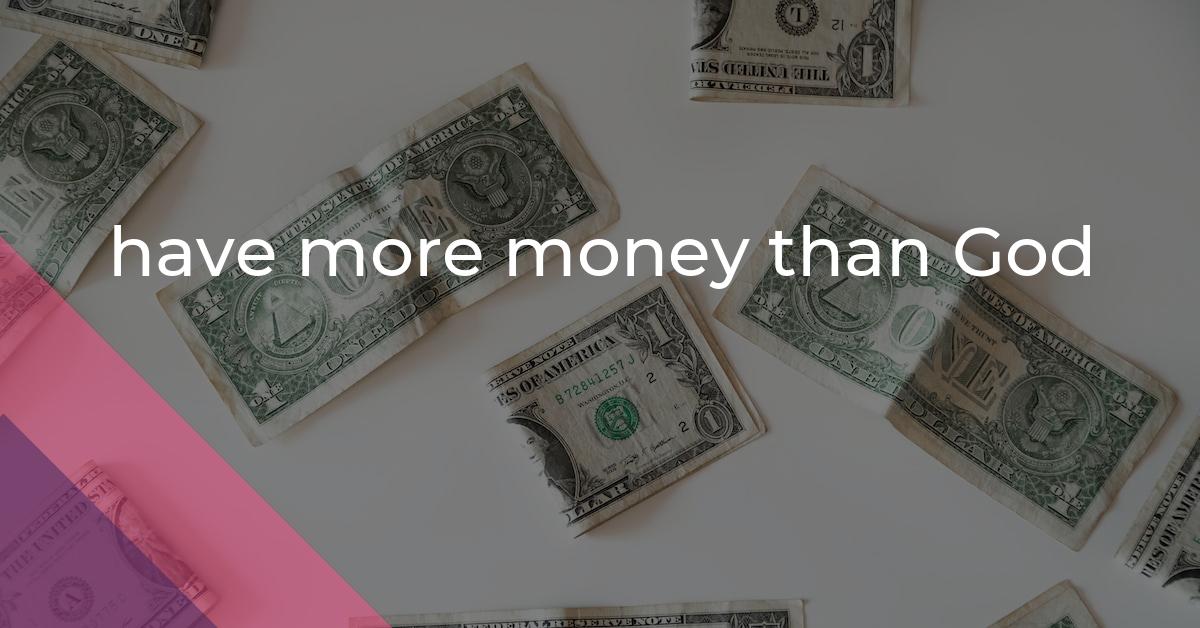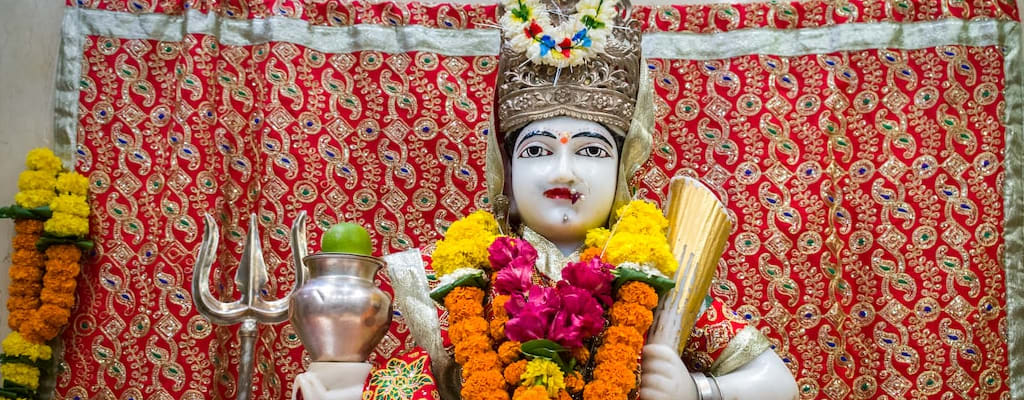have more money than God: Idiom Meaning and Origin
What does ‘have more money than God’ mean?
The idiom "have more money than God" means to be extremely rich or wealthy beyond imagination.

Idiom Explorer
The idiom "live beyond one's means" means spending more money than one can afford, often leading to financial difficulties or debt.
Meaning: Someone who spends a large portion of their income on housing expenses, leaving little money for other expenses or savings.
The idiom "hold the purse strings" means having control or authority over financial matters or spending decisions.
The idiom "hit the jackpot" means to achieve a great success or obtain an unexpected, significant gain, often in a financial sense.
"Hit the big time" is an idiom that means achieving great success or fame, often referring to someone who becomes very successful in their career or achieves a high level of recognition. It implies reaching a significant, noteworthy position or achieving a major breakthrough in one's life or profession.
The idiom "hit it big" means to achieve great success or win a large amount of money, often unexpectedly or after a long period of hard work.
The idiom "high on the hog" means to live in a luxurious or extravagant manner, enjoying the best of everything. It originates from the idea that the choice cuts of meat, which are considered the best, come from the upper part of the pig.
The idiom "high cotton" refers to a situation of great success, prosperity or abundance. It is often used to describe someone who is doing very well in terms of wealth, status or achievements.
The idiom "high and mighty" means that someone is arrogant, haughty, or acting superior to others. It refers to someone who thinks they are better or more important than everyone else.
Limitless Wealth
The idiom "have more money than God" is a vivid expression commonly used in English to convey extreme wealth and abundance. This idiom draws a stark comparison between the immense wealth of an individual or entity and the concept of a divine being. It highlights the notion that the person in question has an unimaginable level of financial resources, surpassing even the wealthiest individuals. The idiom suggests a sense of excess and overabundance, emphasizing the vastness of their monetary holdings.
Although the exact origins of this idiom are unclear, it is likely rooted in the biblical depiction of God as all-powerful and all-knowing. The comparison serves to amplify the magnitude of the wealth being referred to, emphasizing its awe-inspiring scale and almost supernatural quality. The idiom implies that the person or entity possesses wealth on a level that far exceeds the grasp of ordinary mortals.
It is worth noting that this idiom is highly subjective and can be interpreted differently depending on cultural and societal contexts. While it may be commonly used in English-speaking countries to convey extreme wealth, it may not hold the same connotations in other languages or cultures. The idiom resonates particularly well in a society that places significant value on material possessions and financial success.
As with many idiomatic expressions, the meaning of this phrase is not literal but rather metaphorical. It serves as a colorful way to describe an individual or entity's immense wealth, capturing the imagination and evoking a sense of awe and envy. The idiom invites readers and listeners to contemplate the possibilities and limitations of wealth, as well as the complexities that arise from the unequal distribution of resources in society.
The idiom "have it large" is related to "have more money than God" as both expressions convey a sense of excess and luxury. When someone "has it large," they are living in a grand and extravagant manner, often indulging in lavish experiences and possessions. This idiom further emphasizes the idea of having an abundance of wealth and resources beyond what is considered ordinary or necessary.
The idiom "live beyond one's means" is also related to "have more money than God" as it highlights the contrast between one's financial situation and their lifestyle choices. Living beyond one's means refers to spending money in a way that exceeds one's income or financial capabilities. It implies that someone is trying to maintain a lifestyle that they cannot afford, often resulting in debt and financial strain.
The idiom "have eyes bigger than one's stomach" can be related to "have more money than God" in terms of the desire for excess and overindulgence. When someone has eyes bigger than their stomach, they are metaphorically referring to someone who desires more food than they can physically consume. This idiom can be applied to the realm of wealth, suggesting that some individuals have a tendency to desire more material possessions and wealth than they can actually manage or enjoy.
The idiom "have more money than God" encapsulates the notion of extreme wealth and opulence. Its origin is uncertain, but the expressive power of the phrase lies in its ability to convey the unimaginable wealth possessed by an individual or entity. Although figurative, the idiom draws upon religious imagery to emphasize the incomprehensible scale of the wealth being described. It invites contemplation of the role of wealth in society and the emotions it can evoke in others. While this analysis provides insights into the idiom's meaning, it also leaves room for further exploration and interpretation of this rich linguistic expression.
Example usage
Examples of how the idiom "have more money than God" can be used in a sentence:
1. Despite his lavish lifestyle, it's as if he has more money than God.
2. After winning the lottery, she suddenly had more money than God.
3. The billionaire businessman seemed to have more money than God, as his wealth knew no bounds.
More "Wealth" idioms



